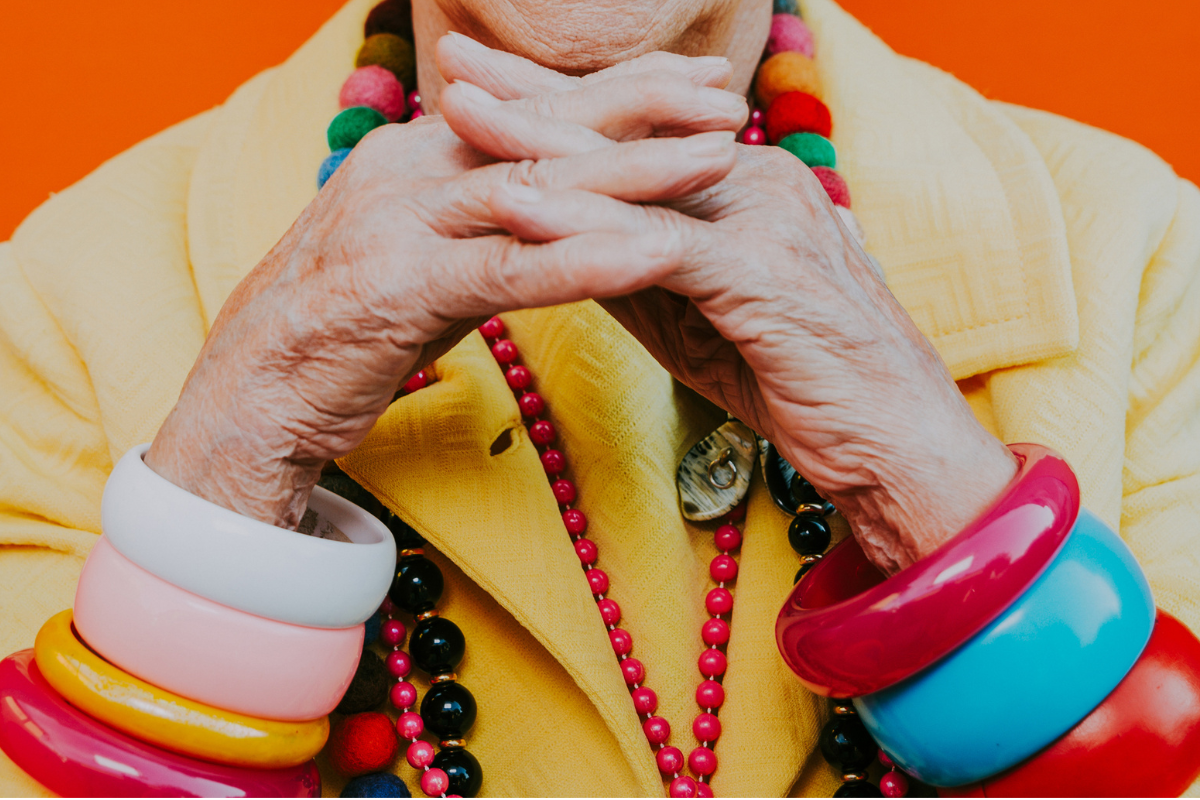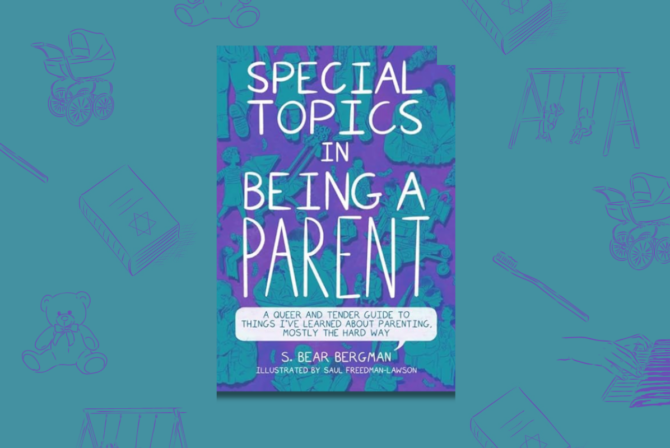It wasn’t until several years ago that I began telling people that I was lucky to have known my velvet-voiced great-grandmother, whom I called Bubby, until I was a freshman in college — who among my peers was so fortunate? But I wish that my last memory of her wasn’t how she lay in her nursing home bed, small and skeletal, wrapped in an industrial-cotton white sheet. She had no idea who I was as I stood there in her bare-walled room at Daybreak Lodge and thought about the absurdity of such facilities often being named daybreak or sunrise. But I also hoped that Bubby somehow recognized my mother, her first grandchild, who was standing over her and murmuring in Yiddish.
In the years since, Mom and I never talked about that visit, and I didn’t want to bring it up. But ever since I became a grandmother and my mother became a great-grandmother, I’ve been craving other memories of Bubby as well as more of her life story.
I don’t know if and for how long I might achieve the great-grandmother status of my mother and her forebears, who all married and had children when they were fresh out of late adolescence. I wouldn’t have wanted to carry on this custom — and was glad I didn’t have a child until I was at the end of my 20s. But I also wonder what a thrill it might be to hold, and be able to take care of, the first child of your first grandchild. Mom said that Bubby delighted in babysitting me occasionally, and would report to her about what she fed me and how she swaddled me in a wool blanket when she put me down for a nap.
So, wanting more, a few months before Mom’s 94th birthday, I asked her if she would share and even write down other specific memories of her grandmother. She agreed, but insisted on collaboration.
“I will, if you will,” she said.
Soon afterward, Mom was both reciting and writing down the details of her grandmother’s life. She told me how Bubby aka Bertha Rubenstein Roisman came from Nikolayev in the Ukraine, where she worked as a midwife who loved “bringing life and joy into the world;” how she married George/Zvi, who “wasn’t a Zionist,” which meant that she never made it to Mandatory Palestine, where her mother, one brother and one sister had settled in the 1920s; and how Bubby’s sister, an actor in the Habima Theater, and her brother, a journalist, had achieved some prominence in the new-old Jewish homeland.
Mom said that she didn’t know why her grandparents emigrated from the Ukraine to Winnipeg, Manitoba, where they raised two daughters — but in the end, they emigrated to Wilmington, Delaware, where they both had other family.
“My grandmother was an unfulfilled woman with a sad life,” Mom said.
Although I had heard Mom say this before, now I bristled at this summation. Had Bubby said this about herself? Had her daughters? Or was this just part of the family trope that seemed to hang over some of my female ancestors like a “should’ve, could’ve” cloud?
My great-grandmother’s life, typical of many Eastern European Jewish immigrant women, was far from a fairy tale with a rich and handsome prince charming — or a pre-feminist story of professional accomplishment. But in my memory, as she bustled about her kitchen and dining room and dry goods store, Bubby seemed to emit more can-do energy than “oy vey” exhalations.
Just as I didn’t want the nursing home room to be my final recollection of Bubby, I wanted to push back against the “sad, unfulfilled” characterization Mom posited. In short, I wanted to change or at least reframe the family narrative for the only maternal ancestor for whom both Mom and I had purely positive feelings.
I also wanted to tighten my grip on my own childhood memories of Bubby, of how she always handed me a dollar bill and a Hershey’s chocolate bar whenever she came to my house; of the semi-chaotic familial seders she hosted in her house-behind-the-store, and of how she serenaded me, as a young child, with a Yiddish-adjacent song — “yaidle, doodle, deedle…” –— which I have never heard since.
Fortunately, Mom was able to excavate a few of her own childhood memories of Bubby. “I’m almost embarrassed to say it, but she spoiled me,” Mom said. “She would fry up the unborn eggs from a chicken, considered a delicacy. ‘For mein Feigele,’ she would say.” Mom laughed as she told me how her grandmother would “freshen up” her kitchen before every Passover by employing the “paper hanger” to put up new kitchen wallpaper, without removing the old wallpaper.
Mom said that one of the great sorrows of Bubby’s life was that she never got to visit her mother, Bracha, her brother, Yaakov, and her sister Bat-Tzion in Israel — which Mom was able to do, during different trips and decades. I, too, was fortunate enough to meet both Bat-Tzion and Yaakov, albeit a year after Bubby died.
Looking back, I recalled my only one-on-one outing with Bubby, when I was 12 and she took me to see the movie “Exodus.” I fell in love with the booming theme music, not to mention the gorgeous Paul Newman as the gorgeous Ari Ben Canaan, but didn’t associate the movie and the 1948 war with Bubby’s family in Israel. I wouldn’t know until years later how much she grieved the deaths of Yaakov’s son and then Bat-Tzion’s son who were killed, seven months apart, in that war.
Death and trauma, including the poverty, oppression and separations Bubby endured throughout her life, must have haunted her, but didn’t seem to consume her — at least in my recollections.
I want to continue to remember Bubby as a gentle yet strong and capable woman who found work that she loved in the early part of her life, and some later joy in tending to and being surrounded by her gaggle of children, grandchildren, and great-grandchildren.
“She was always a comforting person in my life,” Mom told me.
As the keeper of her own memories, Mom may not have much more to share about Bubby. But I will take whatever else I can get — especially at our generational stages. And I will continue to cherish her story about the first time she met Bubby’s mother, her great-grandmother Bracha, in Tel Aviv, in 1949. As Mom recounted, Bracha asked her first, in Yiddish, if she was from America.
“Yes,” Mom told her.
“Are you pregnant?” she asked.
“I’m trying,” Mom said.
Which is when her tough, sheitel-wearing grandmother intimated that Mom should try harder, as she was aiming for “gan eden.” As she told Mom, “If you survive four generations, you go straight to Heaven.”








